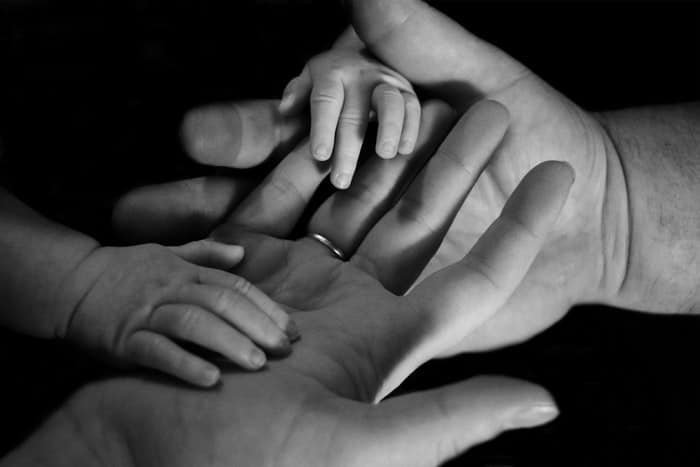The Role of Men in TreatmentDepressionAfter Women’s Childbirth
If your partner shows signs of postpartum depression, you may feel uncertain about how to help her; it can be confusing and even scary to see the mother of your child struggle with such intense negative feelings. It’s important to know that what is happening is not your fault, your partner’s fault, or your child’s fault, and the good news is that you can help her through this time.
A prominent psychiatrist states that postpartum depression (PPD) is an inherited condition and mentions that motherhood does not occur in isolation. Carrying a new baby is challenging, and all mothers are vulnerable and need support during this time. However, as previously mentioned in the pregnancy section.PregnancyAnd childbirth on SelMagz, this does not mean that you are alone, but you should know that your emotional support is a very important option; in this section ofSelMagzThere are ways to help depressed mothers after childbirth that men should study carefully.

TreatmentPostpartum DepressionWith little support
Symptoms of Postpartum Depression
Some women experience unpleasant emotional changes after childbirth, which include:
- Mood instability
- Feelings of depression
- Being nervous
- Feeling sad
- Irritability
- Anxiety
- Poor concentration
- And feelings of excessive dependence
These symptoms occur in 50 to 85 percent of new mothers, but usually go away within a few weeks after childbirth. However, severe postpartum depression affects about 10 percent of new mothers and typically lasts 2 to 3 months after childbirth. Here are some symptoms of severe depression (PPD) that you should recognize in your partner.

Nervousness and postpartum depression
Symptoms of Severe Postpartum Depression or PPD
- Feelings of distress and sadness or excessive crying
- Severe anxiety
- ObsessivenessExcessively
- Losing interest in usual activities
- Feelings of guilt, worthlessness, or inadequacy
- Excessive fatigue, irritability, or sleep disturbances
- Changes in appetite
- Poor focus
- Feeling unfit to raise and cope with the new baby
- Excessive worry about the baby’s health
- Suicidal thoughts

Anxiety and concern about symptoms of severe postpartum depression
Why do some mothers feel depressed after childbirth?
Dr. Meltzer, along with an international team, is studying whether there’s a genetic aspect to postpartum depression disorders, suggesting that postpartum depression in women may be due to vulnerabilities in their genes.
Dr. Meltzer’s research group has worked to find causes and treatments, creating a mobile app called PPD ACT to help women with postpartum depression find answers to their questions.
Some women who go through screening are asked to provide a saliva sample through a kit and send these samples to the research group. If this is done for tens of thousands of women, they can identify genetic differences that cause postpartum depression experiences. The main idea is that better understanding the hereditary or environmental causes of PPD leads to more effective treatments and less suffering.

What causes postpartum depression?
The Role of Men in Treating and Alleviating Women’s Postpartum Depression
What actions can I take to help my partner who is struggling with postpartum depression?
Keep these tips in mind for treating postpartum depression:
The more you expect from her, the harder it will be for her to meet those expectations.
If you tell her you love her, she may not believe it. If you tell her she’s a good mother, she might think you said that just to make her feel better. If you tell her how beautiful she is, she might think you’re lying.
If you tell her not to worry about anything, she might think you have no idea about her bad feelings and don’t understand her.
If you tell her you’ll come home early to help her, she will feel guilty.
If you tell her you’re late because of work, she might think you don’t care about her.

The Spouse’s Role in Treating Postpartum Depression
But instead, you can do the following to help treat your partner’s postpartum depression:
Tell her you know how terrible she feels.
Tell her she will get better soon.
Assure her that you will do everything to help her (treatment, medication, etc.).
Let her know that even though she feels bad, she can still be a good mother.
Remind her that she doesn’t have to do everything perfectly and that it’s okay to make mistakes sometimes.
Tell her you understand how hard she is working right now.
Ask her to let you know what she needs from you to help.
Tell her you know she is doing her best under the circumstances.
Tell her you love her.

Proper Behavior of Men to Alleviate Their Partner’s Postpartum Depression
Things You Should Not Say to Your Partner:
Don’t tell her she needs to finish this or that task.
Don’t say you’re tired of her feelings.
Don’t say this should be the happiest time of her life.
Don’t say you love her even more than before.
Don’t tell her to get over this quickly.
Don’t tell her that if she does this or that and stays home more or goes out more, she will feel better.
Don’t tell her she needs to lose weight, dye her hair, buy new clothes, etc.
Don’t say all new mothers feel this way.

How to Deal with Women’s Postpartum Depression
Don’t say this is just a phase of life that will pass.
Don’t say that if she loves her baby and wants to, this is something she has to endure.
Don’t say she’s strong enough and therefore doesn’t need anyone’s help.
Practical Steps You Can Take to Help Treat Postpartum Depression:
Organize gatherings with friends and family, and those she feels comfortable with, outside the home.
Order dinner from outside.
Read the books your partner gives you.
Write down the worries and questions you have and ask them to your partner’s doctor or therapist.

Treating Postpartum Depression in Women with Spousal Support
Make a list together and jot down items she might need so you can prepare them.
The most important help you can give her is to be there for her consistently. Sit with her, without the TV, without the kids, without bills, and even without reading anything—just be together. Let her know and feel that you are there for her and that you love her.
Listen to her.
Be patient.
Try to wait a while before making any important decisions until she feels better and then decide together.
Some things that used to make her happy may now upset her.
Your involvement in decisions about child care, breastfeeding, etc., may upset her, as they are sensitive topics for her.







